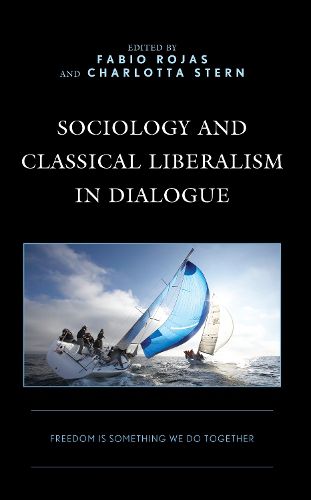Readings Newsletter
Become a Readings Member to make your shopping experience even easier.
Sign in or sign up for free!
You’re not far away from qualifying for FREE standard shipping within Australia
You’ve qualified for FREE standard shipping within Australia
The cart is loading…






The motivation for Sociology and Classical Liberalism in Dialogue: Freedom is Something We Do Together is based on two observations: first, sociology as a field is populated with scholars on the left and second, (few but still) classical liberals and libertarian scholars are found in neighboring social science fields, such as economics, political science, and political philosophy. Can scholarship benefit if sociology and classical liberal ideas are in dialogue? To answer the question, the book gathers sociologists, criminologists, demographers, and political scientists that care about classical liberal ideas, or are willing to engage their sociological thinking with classical liberal ideas. Not all authors would identify themselves as classical liberals. These contributors discuss sociological topics through the lens of classical liberalism, asking how issues such as class, gender, or race relations can be viewed with a different perspective. Chapters also delve into the intersection of sociology and classical liberalism, exploring where viewpoints conflict and where they align.
$9.00 standard shipping within Australia
FREE standard shipping within Australia for orders over $100.00
Express & International shipping calculated at checkout
The motivation for Sociology and Classical Liberalism in Dialogue: Freedom is Something We Do Together is based on two observations: first, sociology as a field is populated with scholars on the left and second, (few but still) classical liberals and libertarian scholars are found in neighboring social science fields, such as economics, political science, and political philosophy. Can scholarship benefit if sociology and classical liberal ideas are in dialogue? To answer the question, the book gathers sociologists, criminologists, demographers, and political scientists that care about classical liberal ideas, or are willing to engage their sociological thinking with classical liberal ideas. Not all authors would identify themselves as classical liberals. These contributors discuss sociological topics through the lens of classical liberalism, asking how issues such as class, gender, or race relations can be viewed with a different perspective. Chapters also delve into the intersection of sociology and classical liberalism, exploring where viewpoints conflict and where they align.